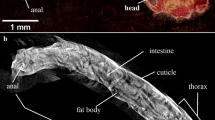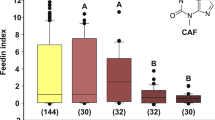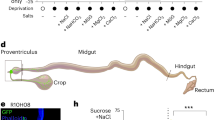Abstract
AN insect is in an extremely vulnerable condition during a moult, so that its behaviour must be completely adapted for the time being to the special problems associated with the moulting process. Ordinary reflexes and locomotor activity must be suppressed. It may even be harmful for some of the muscles to contract at this time while the cuticle is soft, for if they do so they will effect permanent distortions in the drying exoskeleton. The means by which the muscular activity is modified or suppressed are not known.
This is a preview of subscription content, access via your institution
Access options
Subscribe to this journal
Receive 51 print issues and online access
$199.00 per year
only $3.90 per issue
Buy this article
- Purchase on Springer Link
- Instant access to full article PDF
Prices may be subject to local taxes which are calculated during checkout
Similar content being viewed by others
References
Hoyle, G., J. Physiol., 127, 90 (1955).
Author information
Authors and Affiliations
Rights and permissions
About this article
Cite this article
HOYLE, G. Sodium and Potassium Changes occurring in the Hæmolymph of Insects at the Time of Moulting and their Physiological Consequences. Nature 178, 1236–1237 (1956). https://doi.org/10.1038/1781236a0
Issue Date:
DOI: https://doi.org/10.1038/1781236a0
This article is cited by
Comments
By submitting a comment you agree to abide by our Terms and Community Guidelines. If you find something abusive or that does not comply with our terms or guidelines please flag it as inappropriate.



